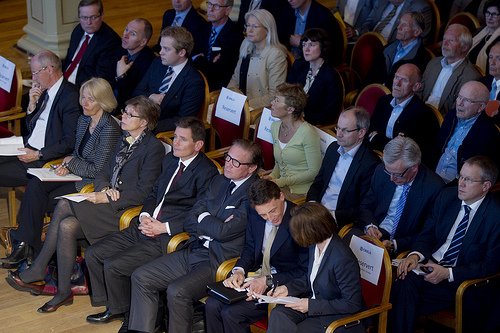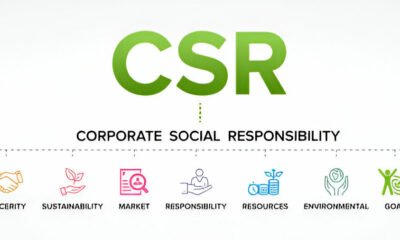

Features
Responsible investment terms: what is engagement and voting?
Last time around, we explored what environmental, social and governance (ESG) meant. Today, we find out how investors can act to ensure that the ethical standards of companies are maintained.
The best way for investors to influence a company’s policies and decisions, in order to make sure that it is meeting its responsibility goals, is through direct engagement.
Engagement and voting are the means by which investors and shareholders express opinions and suggestions to companies. The European Sustainable Investment Forum’s (Eurosif) 2012 European Socially Responsible Investment Study defined the pair as “a long-term process, seeking to influence behaviour or increase disclosure” with regards to ESG matters.
Some might see engagement and voting as kind of watchdogs or a control set of practices, but indeed it also represents a way to push companies towards sustainable behaviour.
Investors can play active roles within businesses, by engaging over ESG decisions and voting for or against executive pay packages for example. By doing this, they make sure that the business is actually honouring its promises.
Investors can speak out against controversial practices, suggest improvements, and ask for more transparency or commitment in certain areas of concern.
There is a good chance that a company will listen to investors when they ask for more sustainable practices through negotiation or during annual general meetings (AGMs), although it may be difficult to prove the effectiveness of this engagement.
Engagement and voting can also influence a company’s corporate social responsibility (CSR) policies, because, as we said when we examined the issue in March, CSR is a very effective way to promote a firm’s sustainability.
Engagement and voting, along with ownership, are potential driving forces for the changes within business that society and the planet need to see.
We stressed in our Guide to Ownership 2013 how active ownership can benefit long-term wealth creation, and is especially relevant to responsible investors.
Shareholders can often make the difference through engagement and voting over matters of responsibility. It’s their voice that can significantly change the way in which decisions are made.
Further reading:
TED talks: who controls the world? – James B Glattfelder
Why share ownership is better than share rental
Ownership Day: parliamentary event outlines long-term benefits of active ownership


 Features11 months ago
Features11 months agoEco-Friendly Cryptocurrencies: Sustainable Investment Choices

 Energy11 months ago
Energy11 months agoThe Growing Role of Solar Panels in Ireland’s Energy Future

 Energy10 months ago
Energy10 months agoGrowth of Solar Power in Dublin: A Sustainable Revolution

 Energy10 months ago
Energy10 months agoRenewable Energy Adoption Can Combat Climate Change




























